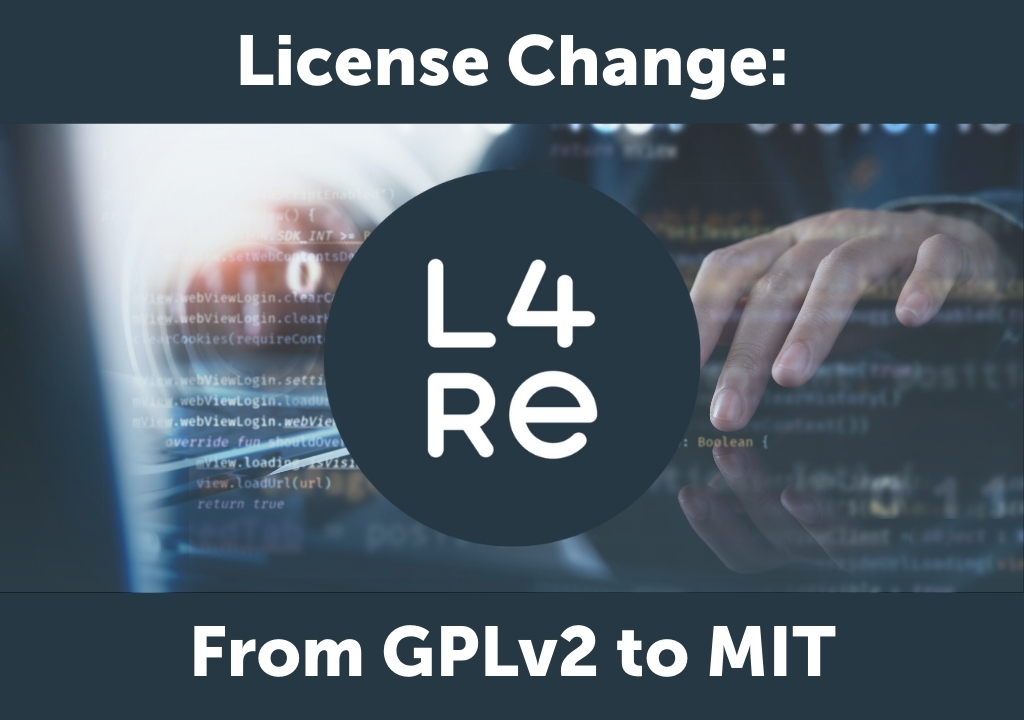Dresden, September 15, 2025 — Kernkonzept GmbH, maintainer, and primary developer of the open source L4Re Operating System Framework (including the L4Re Hypervisor and L4Re Micro Hypervisor), is changing the project’s license from the GNU General Public License version 2 (GPLv2) to the MIT License (Massachusetts Institute of Technology License), effective September 15, 2025.
The decision is explicitly customer- and developer-oriented: it reduces integration and compliance effort, increases project predictability, and makes it easier to use L4Re as middleware within existing, complex software stacks with heterogeneous licensing terms.
The MIT License is a permissive open-source license. It permits use, modification, and redistribution — including in proprietary products — provided the copyright notice and license text are retained. Unlike copyleft licenses such as GPLv2, there is no obligation to disclose one’s own modifications. This simplifies approvals across Legal, Compliance, and Procurement and creates legal clarity for series production. As is standard in open source, the MIT License includes warranty and liability disclaimers.
The scope of the change covers all L4Re components controlled by Kernkonzept. Third-party components and external dependencies are excluded and remain under their respective licenses. Previously published L4Re releases under GPLv2 remain available unchanged.
To streamline contributions, Contributor License Agreements (CLAs) will be discontinued. In their place, Kernkonzept is introducing a “Signed-off-by” rule under the Developer Certificate of Origin (DCO) — like the approach used by the Linux kernel and GCC. With the “Signed-off-by” line in the commit message, contributors confirm that they wrote the code themselves or have the necessary rights. Kernkonzept’s established code review, security, and release processes remain unchanged.
“We align with our customers’ practical use — from pilot projects to series production. The MIT License reduces coordination effort, increases legal certainty, and supports stable processes. In short: more freedom, less overhead, the same rigor,” says Dr. Michael Hohmuth, CEO & Founder.
Dr. Adam Lackorzynski, CTO & Founder, adds: “By switching to MIT, we are giving developers and integrators more freedom and increase acceptance in complex licensing environments. The key is the practical benefit: faster integration, clear compliance, and less friction in day-to-day work.”
Changes for customers:
- Simpler license clearance: less coordination with Legal/Compliance/Procurement
- Faster integration: smoother path from prototype to series production within existing platforms
- Less overhead: CLAs discontinued; contribution and partner processes become leaner
- Predictability and quality: consistently high security and release standards through professional maintainer governance
- Compatibility: low-friction use alongside proprietary and mixed-license software
Availability and notes
- Effective date: September 15, 2025
- Repository (GitHub): https://github.com/kernkonzept/
- License notes and release information: to be published with Release Notes/Tags at rollout
- History: previous L4Re releases under GPLv2 remain available


